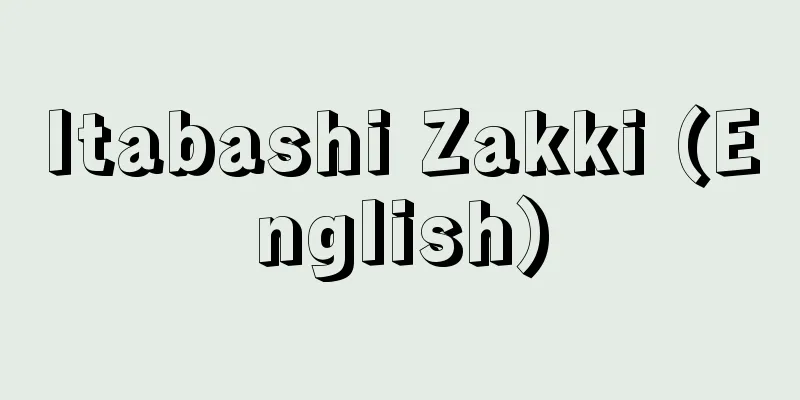qiyas (English spelling)

|
…Judges would gather testimony and evidence to resolve disputes and decide cases based on Islamic law (Hadith, Shari'a). Judges were based on the Qur'an, ijma (consensus), and, when these could not be applied, qiyās (analogy). In important or difficult cases, the mufti could be consulted. … *Some of the terminology explanations that mention "qiyās" are listed below. Source | Heibonsha World Encyclopedia 2nd Edition | Information |
|
…裁判官は紛争を解決するために,証言や証拠を集め,イスラム法(ハディース,シャリーア)に基づいて事件に判決を下す。判決は,コーラン,イジュマー(合意)を根拠にして下され,これらを適用できない場合にはキヤースqiyās(類推)によって裁量した。重要あるいは困難な問題については,ムフティーに意見を求めることができた。… ※「qiyās」について言及している用語解説の一部を掲載しています。 出典|株式会社平凡社世界大百科事典 第2版について | 情報 |
>>: Quadragesimo anno (English spelling)
Recommend
Yoshinori Ikeda
Year of death: August 2, 1877 Year of birth: Tempo...
Six local organizations
It is a general term for six nationwide associatio...
Sekkanseiji - Regency politics
During the Heian period, the direct line of the F...
Channelled wrack
This brown seaweed of the Fucus family grows in co...
Sadayasu Kato
Year of death: May 22, 1623 (June 19, 1623) Year o...
Orchestra Concerto
...Furthermore, if there are two soloists, it is ...
Test paper - Shikenshi
Filter paper that has been soaked in an indicator...
Apabhramśa - Apabhramśa (English spelling)
A general term for late Prakrit. It refers to the ...
Shishiudo - Shishiudo
A large perennial plant of the Umbelliferae famil...
Law of impoverishment
This refers to the fact that under capitalist pro...
Phytotron
…Similar experimental research facilities were su...
abacus
...The boards and papers used in Tengenjutsu to h...
Nestorius - Nestorius (English spelling)
Patriarch of Constantinople. Considered the leadi...
Boris Andreevich Lavrenyov
1891‐1959 Soviet writer. Graduated from the Facult...
Leopold Ritter von Sacher-Masoch
1836‐95 Austrian novelist. Born in Lemberg, Galici...

![Tatsumi [town] - Tatsumi](/upload/images/67cc2396278bc.webp)




![Snowdon [mountain] - Snowdon](/upload/images/67cbf82972f1b.webp)


